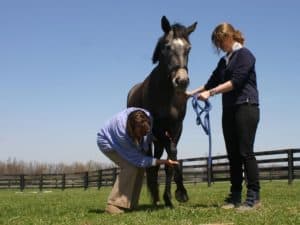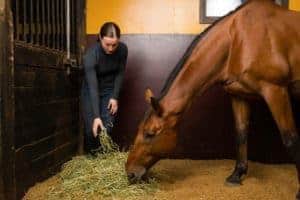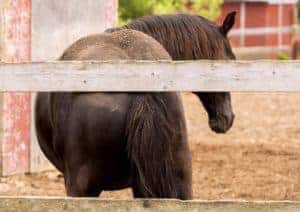Equine Herpesvirus Latency
- Posted by Kimberly S. Brown
Share:

Latency is the biological mechanism by which all herpesviruses permanently survive in nature. Latency provides a natural reservoir for herpesvirus. Some viruses have a reservoir in insects, while others have a reservoir in birds (such as West Nile virus). For herpes, the biological reservoir is the latently infected host animal.
When a herpesvirus is latent, only its genetic material (viral DNA) resides in the cells of the host animal. When that animal becomes stressed, the virus recrudesces (reactivates) and begins to multiply, sometimes causing clinical illness in the host. This free report provides the horse owner and caretaker with an overview of the continuous cycle from latency and spread of herpesvirus, testing, respiratory outbreaks and neurologic latency.

Written by:
Kimberly S. Brown
Related Articles
Stay on top of the most recent Horse Health news with












